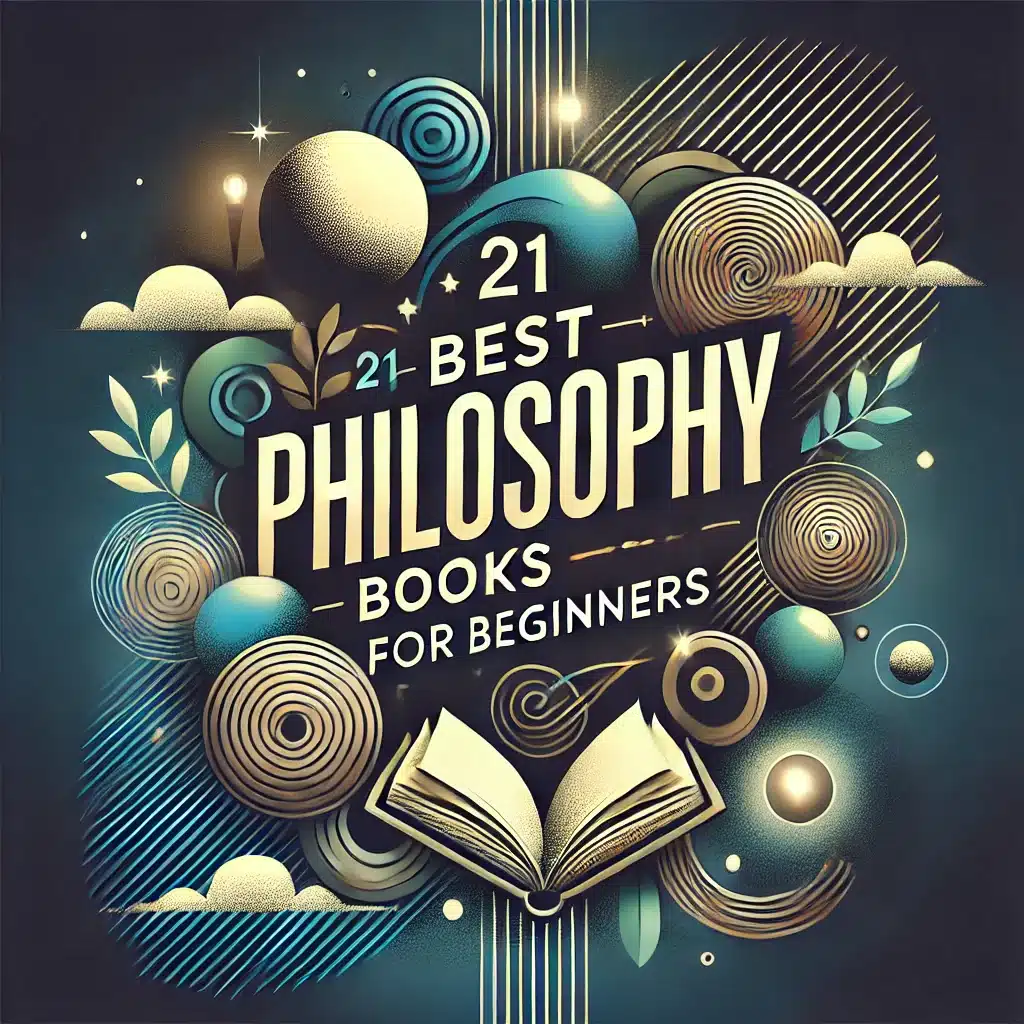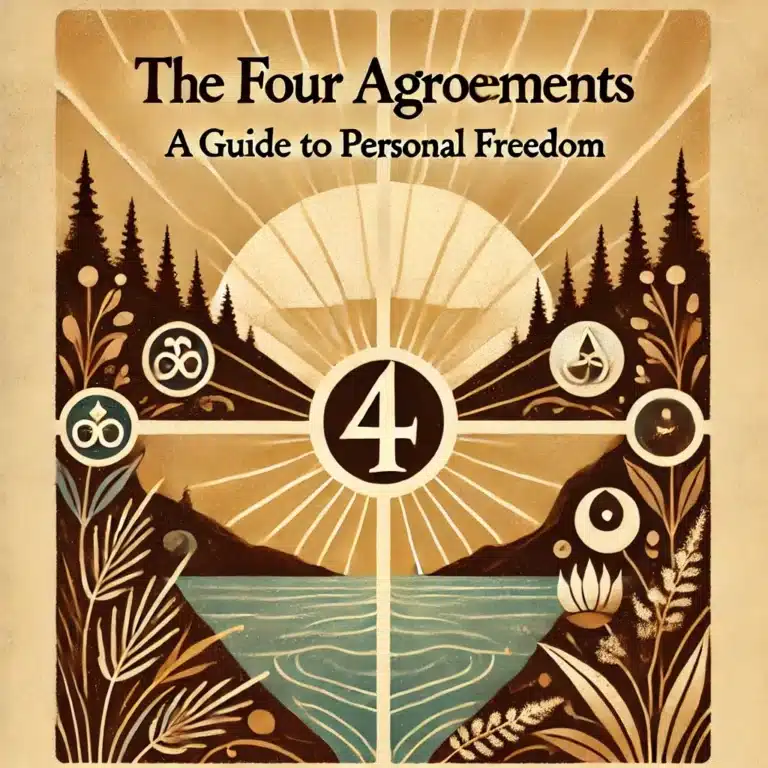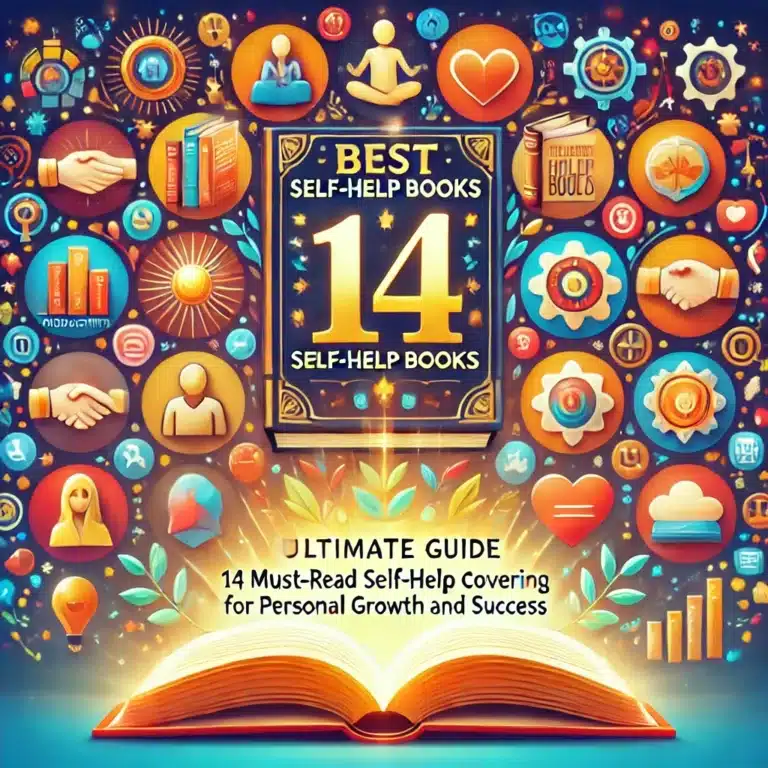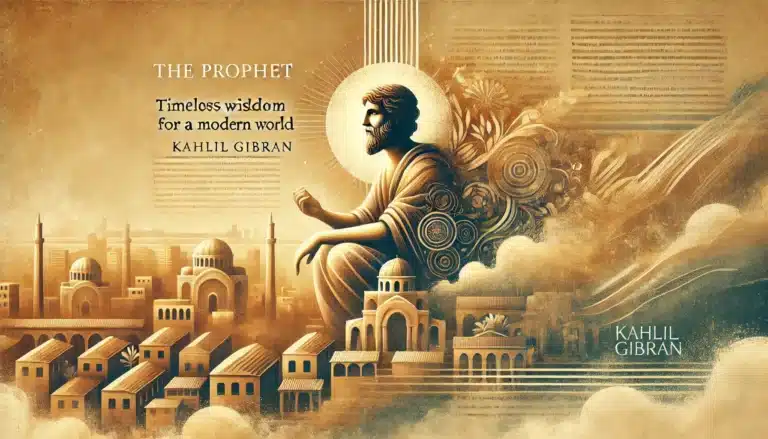14 Best Philosophy Books for Absolute Beginners: Your Guide to Philosophy
Introduction
Philosophy, the love of wisdom, is a discipline that invites us to explore the most profound questions of existence, knowledge, values, reason, and the mind. It’s a subject that has shaped human thought for millennia, influencing everything from politics and ethics to personal development and science. For beginners, the vastness of philosophical literature can be overwhelming, but with the right guidance, anyone can embark on a journey of philosophical discovery.
This article introduces you to the 21 best philosophy books for beginners, carefully categorized to help you explore different areas of philosophy, including ethics, political philosophy, existentialism, Eastern philosophy, and more. Each book comes with an expanded description, author bio, and an explanation of why it’s worth reading. This guide is designed to provide you with a solid foundation in philosophy, whether you’re seeking to understand the nature of reality, the principles of a just society, or the meaning of life.
Does Reading Philosophy Books Work?
Yes, reading philosophy books works in multiple profound ways. Philosophy books are not just abstract musings; they serve as powerful tools for developing critical thinking skills, expanding your worldview, and engaging in deep reflection on life’s most fundamental questions. When you read philosophy, you’re not merely absorbing information—you’re actively participating in a dialogue that has shaped human thought for millennia. This engagement can profoundly affect how you understand yourself and the world around you, making philosophy a practical and transformative endeavor.
Can Philosophy Be Self-Studied?
Yes, philosophy can absolutely be self-studied. Many great philosophers were largely self-taught, navigating the vast landscape of philosophical ideas on their own. The key to self-studying philosophy is an open mind, a willingness to question your own beliefs, and the patience to wrestle with complex ideas. Unlike other disciplines, philosophy doesn’t require a lab or specialized equipment—just a curious mind and a good book. With the right resources, including introductory texts and online lectures, anyone can embark on a journey of philosophical discovery from the comfort of their own home.
Why Should You Read Philosophy? What Benefits Does It Give You?
Reading philosophy offers numerous benefits that extend far beyond academic knowledge. It sharpens your critical thinking skills, making you a more effective problem-solver and decision-maker. Philosophy also enhances your ability to reason and argue logically, which is invaluable in both personal and professional contexts. Moreover, philosophy encourages self-reflection and introspection, helping you better understand your own beliefs and values. It can lead to a greater sense of purpose and meaning in life by challenging you to think deeply about fundamental questions of existence, morality, and the human condition. Ultimately, philosophy enriches your life by expanding your intellectual horizons and fostering a more thoughtful, reflective approach to living.
Best Philosophy Books for Beginners: Categories
- Introductory Philosophy Books
- Ethics and Moral Philosophy
- Political Philosophy
- Existentialism and Humanism
- Eastern Philosophy
- Metaphysics and Epistemology
1. Introductory Philosophy Books
1.1 Sophie’s World by Jostein Gaarder
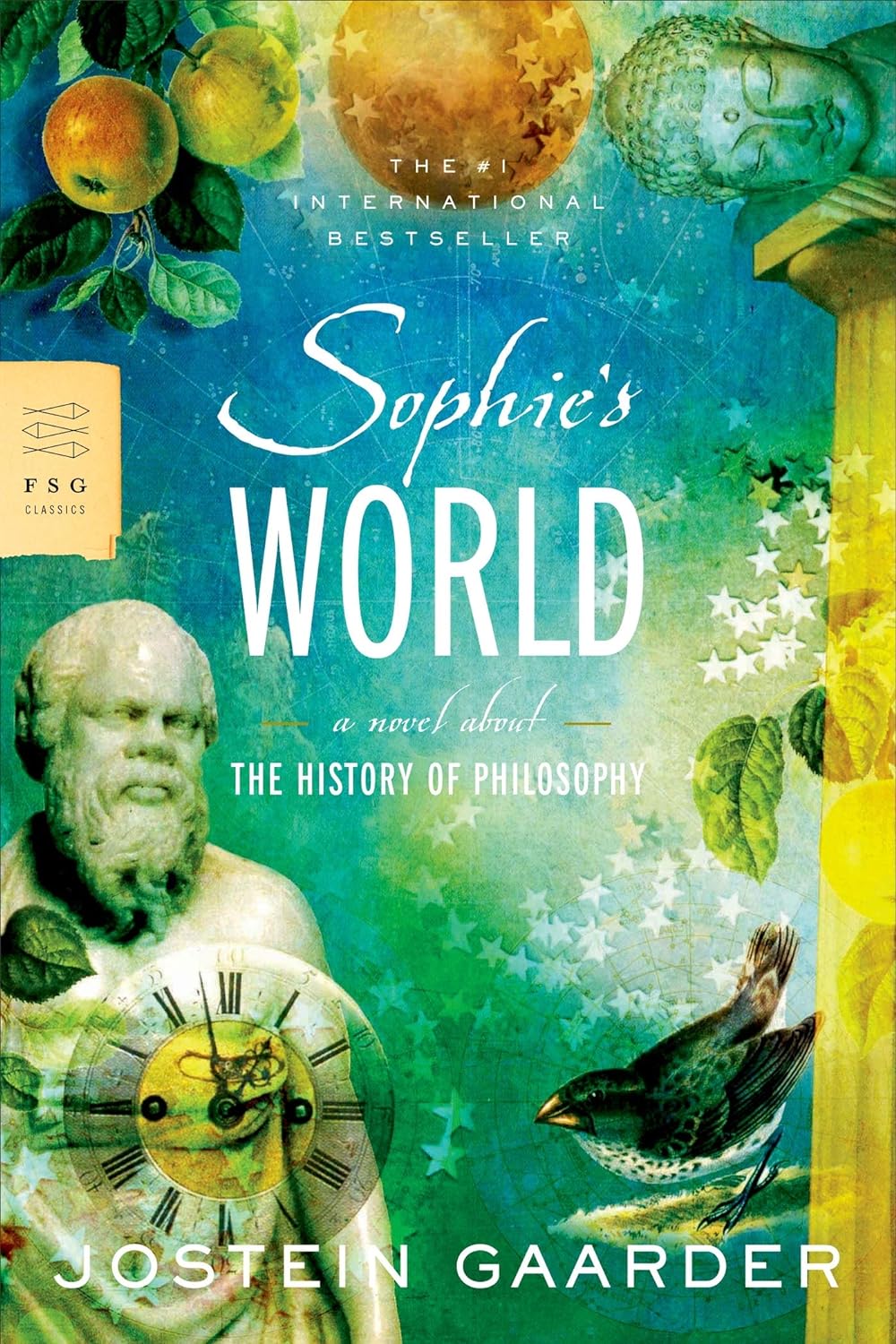
Description: Sophie’s World is a unique blend of fiction and philosophy that serves as an excellent introduction to the history of Western thought. The book follows a young girl named Sophie Amundsen who begins receiving mysterious letters that guide her through the thoughts of major philosophers from Socrates to Sartre. Through a compelling narrative, Gaarder presents complex philosophical ideas in a way that is engaging and accessible to beginners. The story not only educates but also captivates, making it an ideal starting point for anyone new to philosophy.
Author Bio: Jostein Gaarder is a Norwegian author and former philosophy teacher. He is best known for Sophie’s World, which has been translated into over 60 languages and has sold millions of copies worldwide. Gaarder’s ability to simplify complex ideas while maintaining their depth has made him a significant figure in popular philosophy.
Why You Should Read This Book: Sophie’s World offers an entertaining yet educational introduction to philosophy. Its narrative approach makes learning about the history of philosophical thought both fun and informative, easing readers into the subject without overwhelming them.
What Makes This Book Special: The unique structure of Sophie’s World, where philosophical ideas are presented through a fictional narrative, allows readers to explore profound concepts in an enjoyable and relatable way. This combination of story and philosophy makes it a standout work that appeals to both young and adult readers.
Buy Sophie’s World from Amazon Now
1.2 The Problems of Philosophy by Bertrand Russell
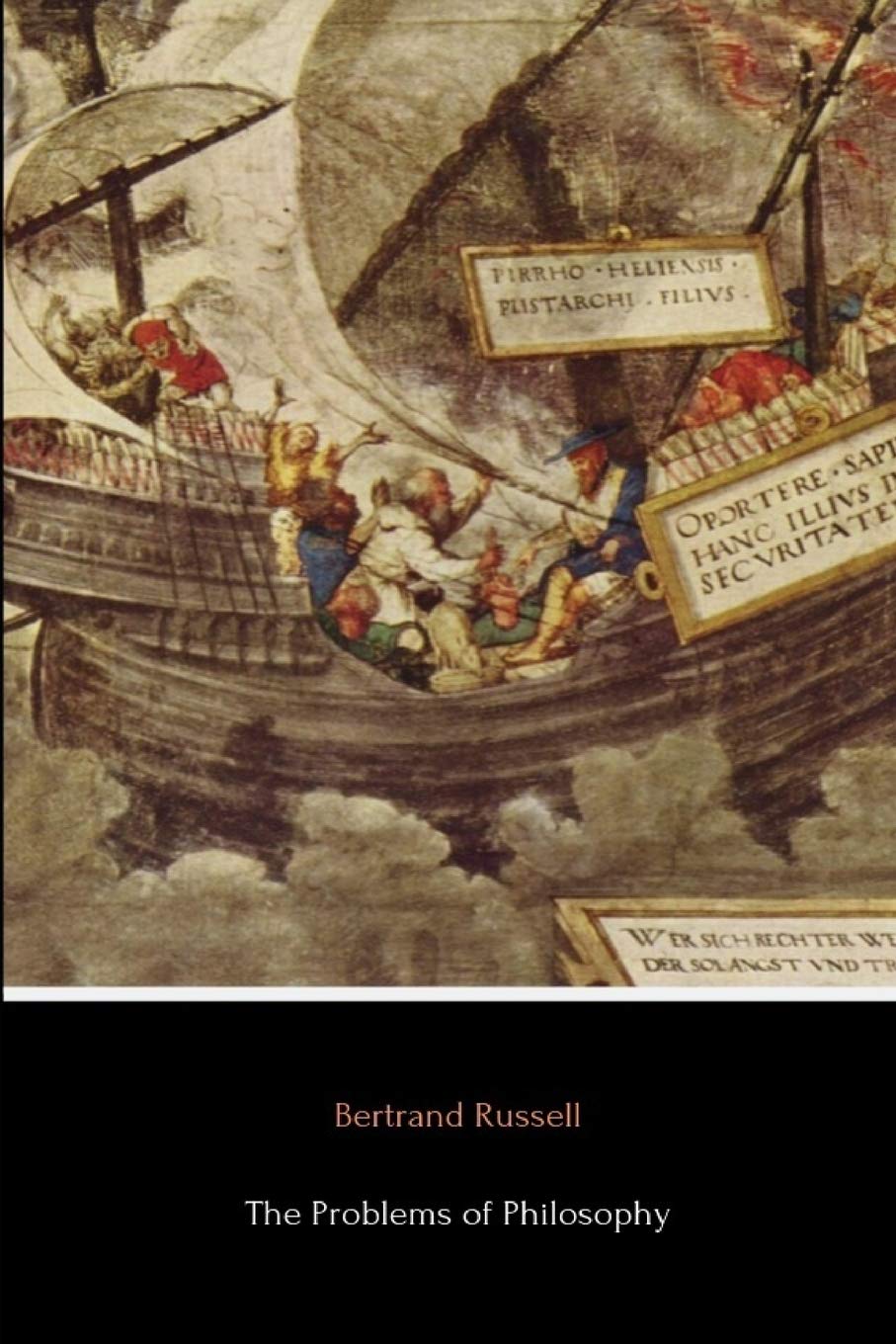
Description: The Problems of Philosophy by Bertrand Russell is a classic introduction to the central questions of philosophy. Russell explores topics such as the nature of reality, the limits of human knowledge, and the distinction between appearance and reality. His writing is clear, concise, and approachable, making complex philosophical concepts understandable for beginners. This book serves as an excellent introduction to analytic philosophy and is particularly valuable for those interested in epistemology and metaphysics.
Author Bio: Bertrand Russell was a British philosopher, logician, and social critic. He is considered one of the founders of analytic philosophy and made significant contributions to logic, mathematics, and social theory. In 1950, Russell was awarded the Nobel Prize in Literature for his significant writings in which he championed humanitarian ideals and freedom of thought.
Why You Should Read This Book: The Problems of Philosophy is an ideal starting point for anyone new to philosophy, especially those interested in the fundamental questions surrounding knowledge and existence. Russell’s clear and engaging style makes this book accessible to a broad audience.
What Makes This Book Special: Russell’s ability to distill complex ideas into simple, comprehensible language is what makes The Problems of Philosophy a classic. The book provides readers with a solid foundation in philosophical inquiry and encourages them to think critically about the nature of the world.
Buy The Problems of Philosophy from Amazon Now
2. Ethics and Moral Philosophy
2.1 The Nicomachean Ethics by Aristotle
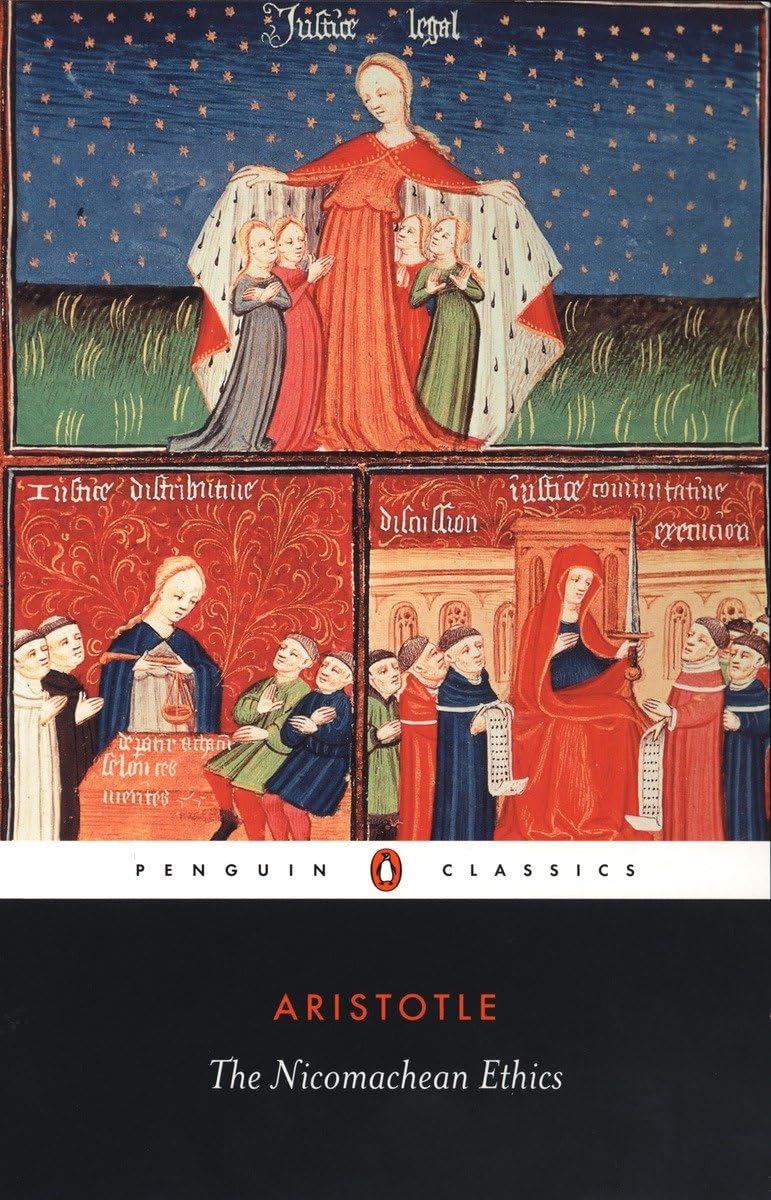
Description: The Nicomachean Ethics by Aristotle is a foundational text in Western ethical thought, exploring the nature of virtue and the good life. Aristotle examines what it means to live well and achieve eudaimonia (often translated as “flourishing” or “happiness”) through the cultivation of virtuous habits. The book is structured around Aristotle’s belief that virtue is a mean between extremes and that ethical living is essential to personal fulfillment. This text has had a profound impact on moral philosophy and continues to be a central work in the study of ethics.
Author Bio: Aristotle was a Greek philosopher and student of Plato, who went on to tutor Alexander the Great. He is one of the most influential figures in Western philosophy, with contributions to a wide range of subjects, including ethics, politics, metaphysics, biology, and logic. Aristotle’s work laid the foundation for much of Western intellectual tradition, and his ideas continue to be studied and revered today.
Why You Should Read This Book: The Nicomachean Ethics offers timeless wisdom on how to live a virtuous and fulfilling life. Aristotle’s exploration of the nature of virtue and happiness is foundational for understanding Western ethical thought, making this book essential reading for anyone interested in moral philosophy.
What Makes This Book Special: Aristotle’s ability to articulate a comprehensive and coherent theory of virtue ethics, combined with his practical approach to philosophical inquiry, makes The Nicomachean Ethics a uniquely valuable work. The book’s influence on subsequent ethical thought is immense, making it a cornerstone of Western philosophy.
Buy The Nicomachean Ethics from Amazon Now
2.2 Beyond Good and Evil by Friedrich Nietzsche
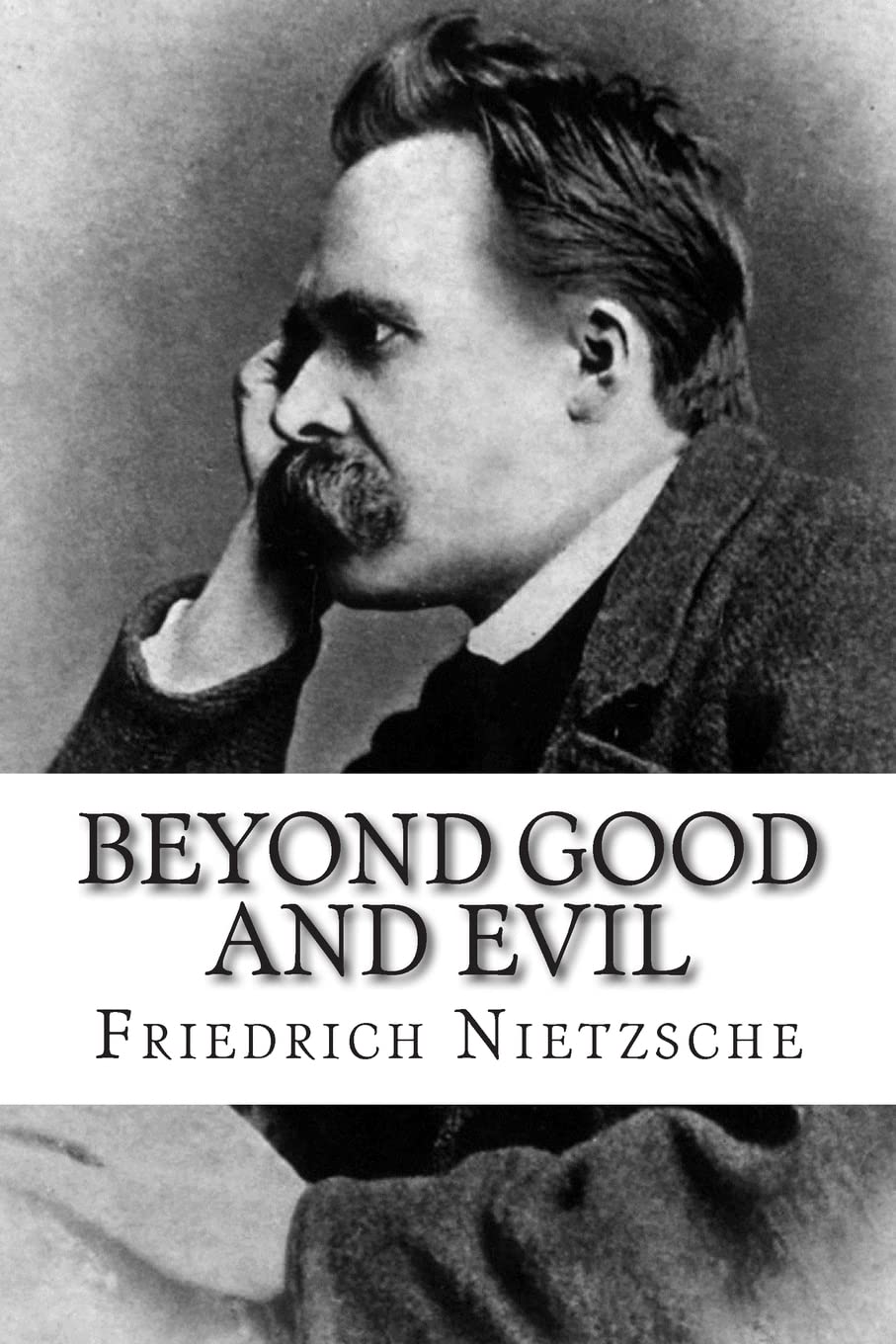
Description: In Beyond Good and Evil, Friedrich Nietzsche offers a radical critique of traditional morality and religion. He challenges readers to question societal norms and develop their own values, rather than accepting those imposed by culture or religion. The book is provocative and stimulating, encouraging deep thought and self-examination. Nietzsche’s exploration of concepts such as the “will to power” and the Übermensch has had a profound influence on modern philosophy and continues to be a compelling read for those interested in existentialism and ethics.
Author Bio: Friedrich Nietzsche was a German philosopher, cultural critic, and philologist. His work has had a lasting impact on Western philosophy, particularly in the areas of existentialism, postmodernism, and critical theory. Nietzsche’s ideas have been both celebrated and controversial, making him one of the most influential and enigmatic figures in the history of philosophy.
Why You Should Read This Book: Beyond Good and Evil is essential reading for anyone interested in challenging conventional beliefs and exploring the deeper questions of morality and human nature. Nietzsche’s writing is powerful and thought-provoking, making this book a compelling introduction to his philosophy.
What Makes This Book Special: Nietzsche’s ability to confront uncomfortable truths and his willingness to challenge the status quo make Beyond Good and Evil a uniquely powerful work. The book’s influence on modern thought is immense, and its ideas continue to provoke debate and inspire new generations of thinkers.
Buy Beyond Good and Evil from Amazon Now
2.3 On the Shortness of Life by Seneca

Description: In On the Shortness of Life, Seneca, a Stoic philosopher, reflects on the fleeting nature of time and the importance of living a purposeful life. The book is a powerful reminder that life is short, and we must make the most of our time by focusing on what truly matters. Seneca’s wisdom is timeless, offering practical advice on how to live with intention, avoid distractions, and find contentment. This brief but profound work is a perfect introduction to Stoic philosophy, encouraging readers to think deeply about their priorities and the way they spend their time.
Author Bio: Lucius Annaeus Seneca, commonly known as Seneca, was a Roman Stoic philosopher, statesman, and playwright. He served as an advisor to Emperor Nero and was one of the leading intellectual figures of his time. Seneca’s writings on Stoicism have had a lasting impact on Western thought, particularly in the areas of ethics and personal development.
Why You Should Read This Book: On the Shortness of Life offers timeless wisdom on how to live a meaningful life. Seneca’s reflections on time and mortality are as relevant today as they were two thousand years ago, making this book an essential read for anyone seeking to live with purpose and intention.
What Makes This Book Special: The practical and accessible nature of Seneca’s advice, combined with the profound depth of his philosophical insights, makes On the Shortness of Life a uniquely valuable work. Its emphasis on the importance of living in the present and making the most of one’s time resonates deeply with readers from all walks of life.
Buy On the Shortness of Life from Amazon Now
2.4 Groundwork of the Metaphysics of Morals by Immanuel Kant

Description: Groundwork of the Metaphysics of Morals is one of Immanuel Kant’s most important works, laying the foundation for modern moral philosophy. In this text, Kant introduces the concept of the categorical imperative, a universal moral law that he argues is the basis for all ethical behavior. The book explores the nature of duty, the role of reason in moral decision-making, and the importance of autonomy in ethical life. Although challenging, this work is essential for understanding Kant’s ethical theory and its influence on subsequent philosophical thought.
Author Bio: Immanuel Kant was a German philosopher and one of the central figures of the Enlightenment. His work has had a profound influence on modern philosophy, particularly in the areas of epistemology, metaphysics, and ethics. Kant’s ideas continue to be studied and debated, making him one of the most influential philosophers in history.
Why You Should Read This Book: Groundwork of the Metaphysics of Morals is essential reading for anyone interested in moral philosophy. Kant’s exploration of duty, reason, and autonomy is foundational for understanding modern ethical theory, making this book a must-read for those seeking to engage with the most profound questions of morality.
What Makes This Book Special: Kant’s rigorous approach to philosophical inquiry and his ability to tackle complex ideas with clarity and precision make Groundwork of the Metaphysics of Morals a uniquely valuable work. The book’s influence on subsequent ethical thought is immense, making it a cornerstone of Western philosophy.
Buy Groundwork of the Metaphysics of Morals from Amazon Now
3. Political Philosophy
3.1 The Republic by Plato
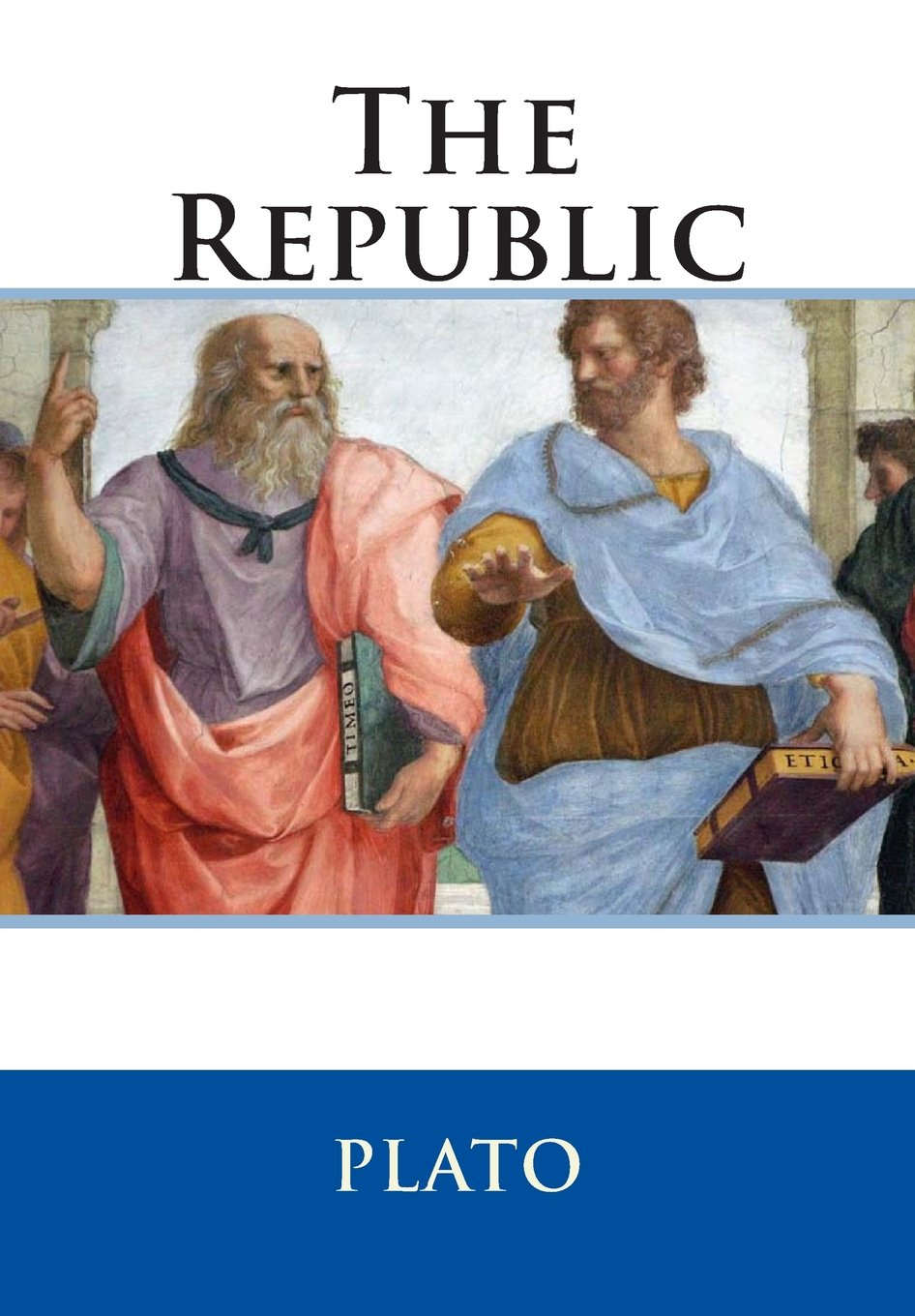
Description: The Republic by Plato is one of the foundational texts in Western philosophy, exploring themes of justice, the ideal state, and the role of the individual in society. Written as a series of dialogues led by Socrates, the book delves into concepts such as the theory of forms, the nature of reality, and the philosopher-king. Though challenging, The Republic is essential reading for anyone interested in understanding the foundations of philosophical thought and its influence on political theory, ethics, and education.
Author Bio: Plato was a student of Socrates and the teacher of Aristotle, making him one of the most influential figures in Western philosophy. His works, written in the form of dialogues, cover a broad range of subjects, including ethics, politics, metaphysics, and epistemology. Plato’s ideas have had a lasting impact on Western thought and continue to be studied and debated today.
Why You Should Read This Book: The Republic is a cornerstone of philosophical literature, offering insights into the nature of justice, power, and society. It is crucial for anyone seeking to understand the roots of Western philosophy and its ongoing influence on modern thought.
What Makes This Book Special: The dialogues in The Republic not only present profound philosophical ideas but also engage the reader in a process of critical thinking and debate. The allegory of the cave, in particular, is one of the most famous and enduring metaphors in philosophy, illustrating the difference between the world of appearances and the world of reality.
Buy The Republic from Amazon Now
3.2 The Prince by Niccolò Machiavelli
Description: The Prince by Niccolò Machiavelli is a classic work of political philosophy that offers pragmatic advice on leadership and power dynamics. Written in the early 16th century, the book is often seen as a manual for rulers on how to maintain power and control. Machiavelli’s approach is pragmatic, focusing on the realities of political power rather than idealistic notions of justice or virtue. His ideas have sparked controversy and debate for centuries, but they remain relevant in discussions of political strategy, ethics, and human behavior.
Author Bio: Niccolò Machiavelli was an Italian diplomat, philosopher, and historian. He is best known for his political treatises, particularly The Prince, which has been a cornerstone of political theory since its publication. Machiavelli’s work laid the foundation for modern political science, and his name has become synonymous with cunning and ruthless political tactics.
Why You Should Read This Book: The Prince is a must-read for anyone interested in politics, leadership, or ethics. Machiavelli’s insights into power dynamics are as relevant today as they were in the Renaissance, making this book a timeless guide to political strategy.
What Makes This Book Special: Machiavelli’s willingness to confront the harsh realities of political power sets The Prince apart from other works of political philosophy. The book’s influence on both historical and contemporary political thought is undeniable, making it an essential text for understanding the nature of power and leadership.
Buy The Prince from Amazon Now
3.3 Leviathan by Thomas Hobbes
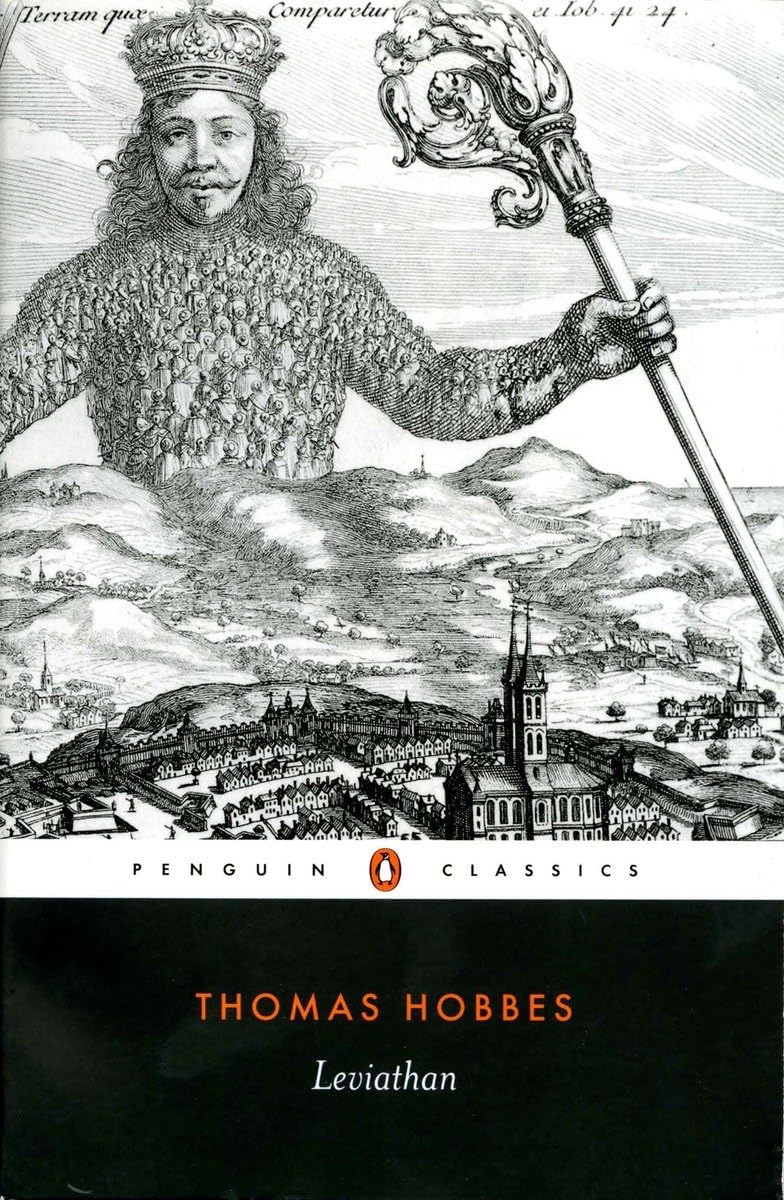
Description: Leviathan by Thomas Hobbes is one of the most influential works of political philosophy, presenting a powerful argument for the necessity of a strong central authority to maintain peace and order in society. Hobbes explores the nature of human beings in the state of nature, where life is “solitary, poor, nasty, brutish, and short,” and argues that the only way to avoid this chaos is through the establishment of a social contract in which individuals surrender some of their freedoms to a sovereign power. Leviathan is a foundational text in the study of political theory, offering insights into the nature of power, authority, and the state.
Author Bio: Thomas Hobbes was an English philosopher and political theorist. He is best known for his work Leviathan, which laid the groundwork for modern political philosophy, particularly in the areas of social contract theory and the nature of government. Hobbes’s ideas have had a lasting impact on Western thought, influencing thinkers such as John Locke, Jean-Jacques Rousseau, and Karl Marx.
Why You Should Read This Book: Leviathan is essential reading for anyone interested in political philosophy and the nature of government. Hobbes’s exploration of the social contract and the role of the state in maintaining order is foundational for understanding modern political theory.
What Makes This Book Special: Hobbes’s ability to present a coherent and compelling argument for the necessity of a strong central authority, combined with his profound insights into human nature, makes Leviathan a uniquely valuable work. The book’s influence on subsequent political thought is immense, making it a cornerstone of Western philosophy.
3.4 On Liberty by John Stuart Mill
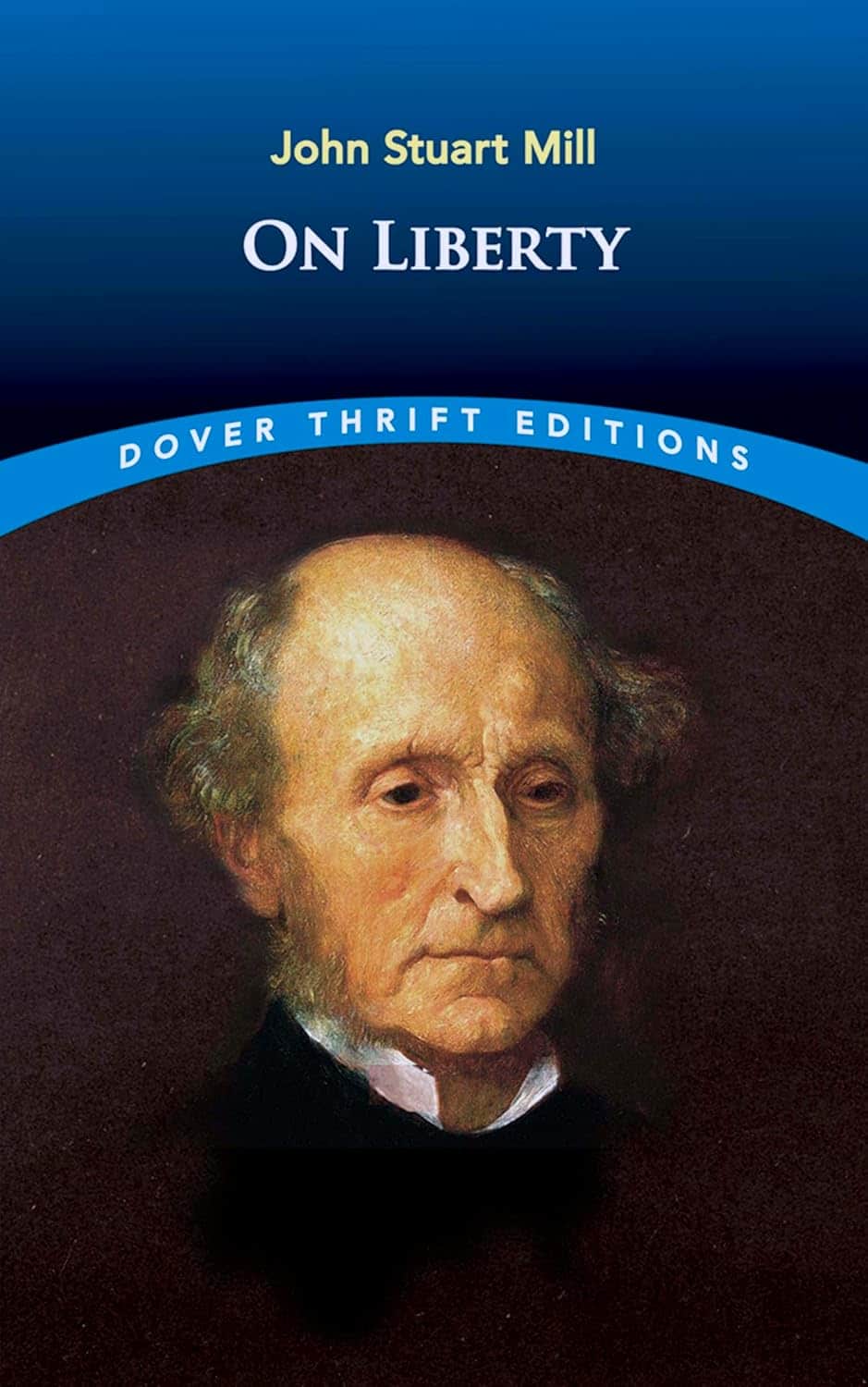
Description: On Liberty by John Stuart Mill is one of the most important works of political philosophy, offering a powerful defense of individual freedom and liberty. Mill argues that the only justification for limiting an individual’s freedom is to prevent harm to others, a principle known as the “harm principle.” The book explores the nature of freedom, the role of government, and the limits of authority, making it a foundational text in the study of liberalism and human rights. On Liberty remains highly relevant today, as it addresses issues of free speech, personal autonomy, and the balance between individual rights and social responsibility.
Author Bio: John Stuart Mill was an English philosopher, political economist, and civil servant. He is best known for his work on liberty, utilitarianism, and the role of government in society. Mill’s ideas have had a lasting impact on Western thought, particularly in the areas of political theory, ethics, and social justice.
Why You Should Read This Book: On Liberty is essential reading for anyone interested in the nature of freedom, individual rights, and the role of government in society. Mill’s exploration of the balance between individual liberty and social responsibility is foundational for understanding modern political thought.
What Makes This Book Special: Mill’s ability to present a compelling and coherent argument for the importance of individual freedom, combined with his profound insights into the nature of liberty, makes On Liberty a uniquely valuable work. The book’s influence on subsequent political thought is immense, making it a cornerstone of Western philosophy.
Buy On Liberty from Amazon Now
4. Existentialism and Humanism
4.1 Existentialism is a Humanism by Jean-Paul Sartre

Description: Existentialism is a Humanism is a concise and accessible introduction to existentialist philosophy, written by one of the movement’s most influential figures, Jean-Paul Sartre. In this work, Sartre argues that “existence precedes essence,” meaning that humans are not born with a predetermined purpose or nature; rather, we create our own values and meaning through our choices and actions. The book addresses common misconceptions about existentialism and defends the philosophy as a form of humanism that emphasizes individual freedom and responsibility.
Author Bio: Jean-Paul Sartre was a French philosopher, playwright, and novelist, and one of the leading figures in 20th-century existentialism. His works, including Being and Nothingness and Nausea, have had a profound impact on modern philosophy, particularly in the areas of existentialism, phenomenology, and political theory. Sartre was awarded the Nobel Prize in Literature in 1964, which he famously declined.
Why You Should Read This Book: Existentialism is a Humanism is an excellent introduction to existentialist thought, offering a clear and concise explanation of its core principles. Sartre’s defense of existentialism as a philosophy of freedom and responsibility makes this work particularly relevant for those interested in exploring the relationship between individual choice and moral values.
What Makes This Book Special: Sartre’s ability to articulate complex philosophical ideas in a straightforward and engaging manner makes Existentialism is a Humanism a valuable read for beginners. The book’s emphasis on the importance of personal freedom and the responsibility that comes with it resonates deeply with readers seeking to understand the human condition.
Buy Existentialism is a Humanism from Amazon Now
4.2 Man’s Search for Meaning by Viktor Frankl
Description: Man’s Search for Meaning is a powerful exploration of human resilience and the search for purpose, written by Viktor Frankl, a Holocaust survivor and psychiatrist. The book is divided into two parts: the first recounts Frankl’s experiences in Nazi concentration camps, and the second introduces his philosophy of logotherapy, which emphasizes finding meaning in life’s challenges. Frankl argues that even in the most brutal conditions, individuals can find a sense of purpose that gives their lives meaning and direction.
Author Bio: Viktor Frankl was an Austrian psychiatrist, neurologist, and Holocaust survivor. He is the founder of logotherapy, a form of existential analysis that focuses on finding meaning in life. Frankl’s experiences during the Holocaust deeply influenced his work, and Man’s Search for Meaning has become one of the most influential books in the fields of psychology and personal development.
Why You Should Read This Book: Man’s Search for Meaning offers profound insights into the human capacity for resilience and the importance of finding purpose in life. Frankl’s philosophy of logotherapy is a powerful tool for anyone facing adversity, making this book a valuable read for those seeking to understand the meaning of suffering and the potential for personal growth.
What Makes This Book Special: The combination of Frankl’s harrowing personal experiences and his philosophical insights makes Man’s Search for Meaning a uniquely powerful work. The book’s emphasis on the importance of finding meaning in life’s challenges has resonated with readers worldwide, making it a timeless source of inspiration and hope.
Buy Man’s Search for Meaning from Amazon Now
4.3 The Myth of Sisyphus by Albert Camus
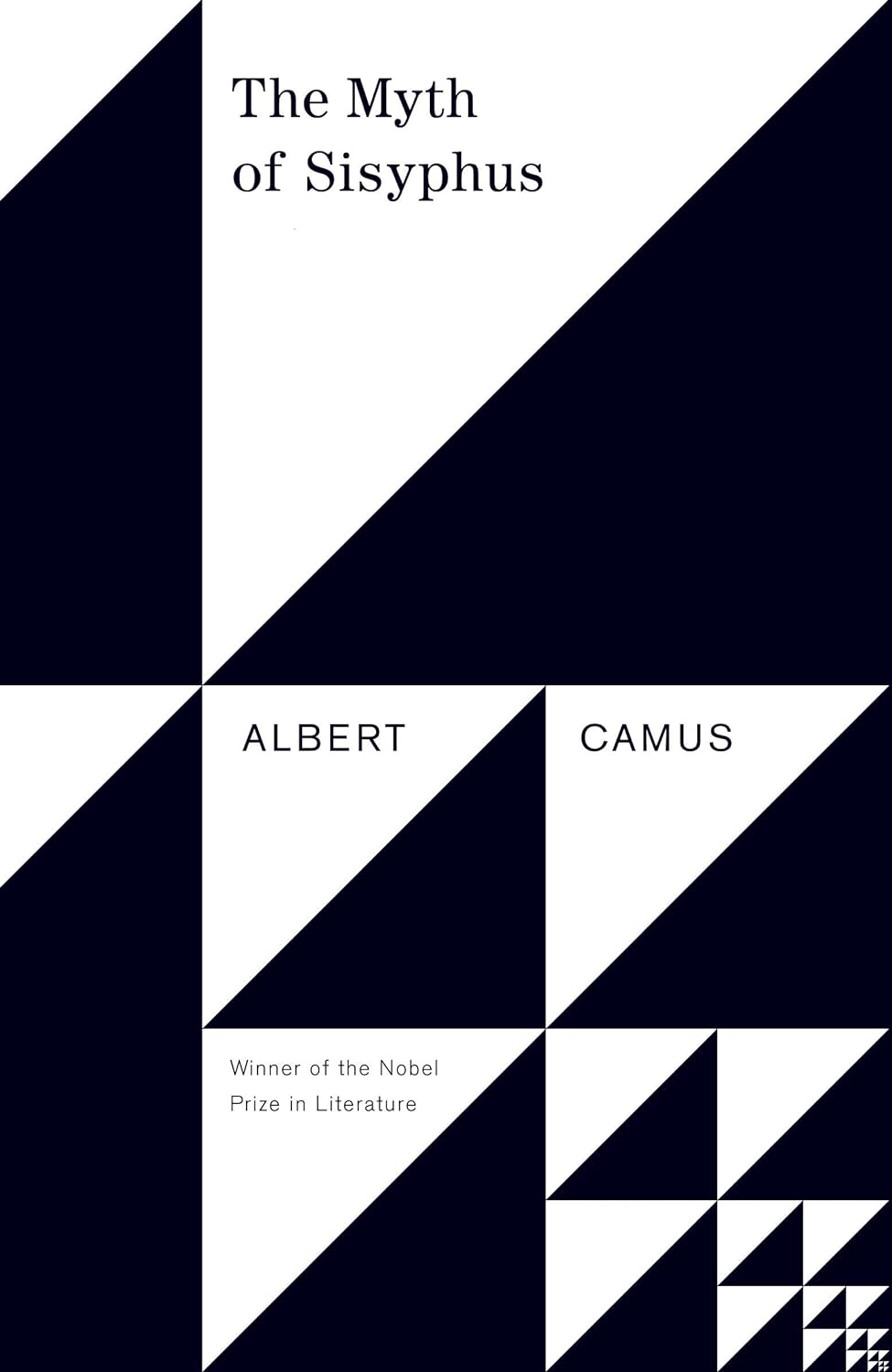
Description: The Myth of Sisyphus is one of Albert Camus’s most important works, offering a profound exploration of the human condition and the search for meaning in a seemingly absurd world. Camus uses the ancient Greek myth of Sisyphus, who is condemned to roll a boulder up a hill for eternity, as a metaphor for the human struggle against the absurd. The book examines the tension between the desire for meaning and the apparent meaninglessness of life, ultimately arguing that we must find our own purpose in the face of the absurd.
Author Bio: Albert Camus was a French philosopher, author, and journalist. He is best known for his contributions to the philosophy of absurdism and his exploration of the human condition in works such as The Stranger and The Plague. Camus was awarded the Nobel Prize in Literature in 1957 for his literary and philosophical work.
Why You Should Read This Book: The Myth of Sisyphus offers a compelling and thought-provoking exploration of the human struggle against the absurd. Camus’s writing is both accessible and profound, making this book an essential read for anyone interested in existentialism and the search for meaning in life.
What Makes This Book Special: Camus’s ability to articulate the tension between the desire for meaning and the apparent meaninglessness of life, combined with his profound insights into the human condition, makes The Myth of Sisyphus a uniquely powerful work. The book’s exploration of the absurd resonates deeply with readers seeking to understand the challenges of existence.
Buy The Myth of Sisyphus from Amazon Now
5. Eastern Philosophy
5.1 The Tao Te Ching by Lao Tzu

Description: The Tao Te Ching is a foundational text of Taoist philosophy, attributed to the ancient Chinese sage Lao Tzu. The book offers wisdom on living in harmony with the Tao, or the fundamental nature of the universe. Its poetic and enigmatic verses invite deep reflection, encouraging readers to embrace simplicity, humility, and balance in their lives. The Tao Te Ching has had a profound influence on Eastern thought and continues to be a source of inspiration for those seeking to live in accordance with the natural order.
Author Bio: Lao Tzu, also known as Laozi, is a legendary figure in Chinese philosophy, traditionally considered the author of the Tao Te Ching and the founder of Taoism. Little is known about his life, but his teachings have had a lasting impact on Chinese culture and philosophy, particularly in the areas of ethics, politics, and metaphysics.
Why You Should Read This Book: The Tao Te Ching offers timeless wisdom on how to live in harmony with the world and oneself. Its emphasis on simplicity, humility, and balance makes it a valuable read for anyone seeking to cultivate inner peace and live in accordance with the natural order.
What Makes This Book Special: The poetic and enigmatic nature of the Tao Te Ching allows for multiple interpretations, making it a rich and rewarding text to revisit throughout one’s life. Its teachings have inspired countless individuals across cultures and centuries, making it one of the most enduring works of Eastern philosophy.
Buy The Tao Te Ching from Amazon Now
5.2 The Bhagavad Gita
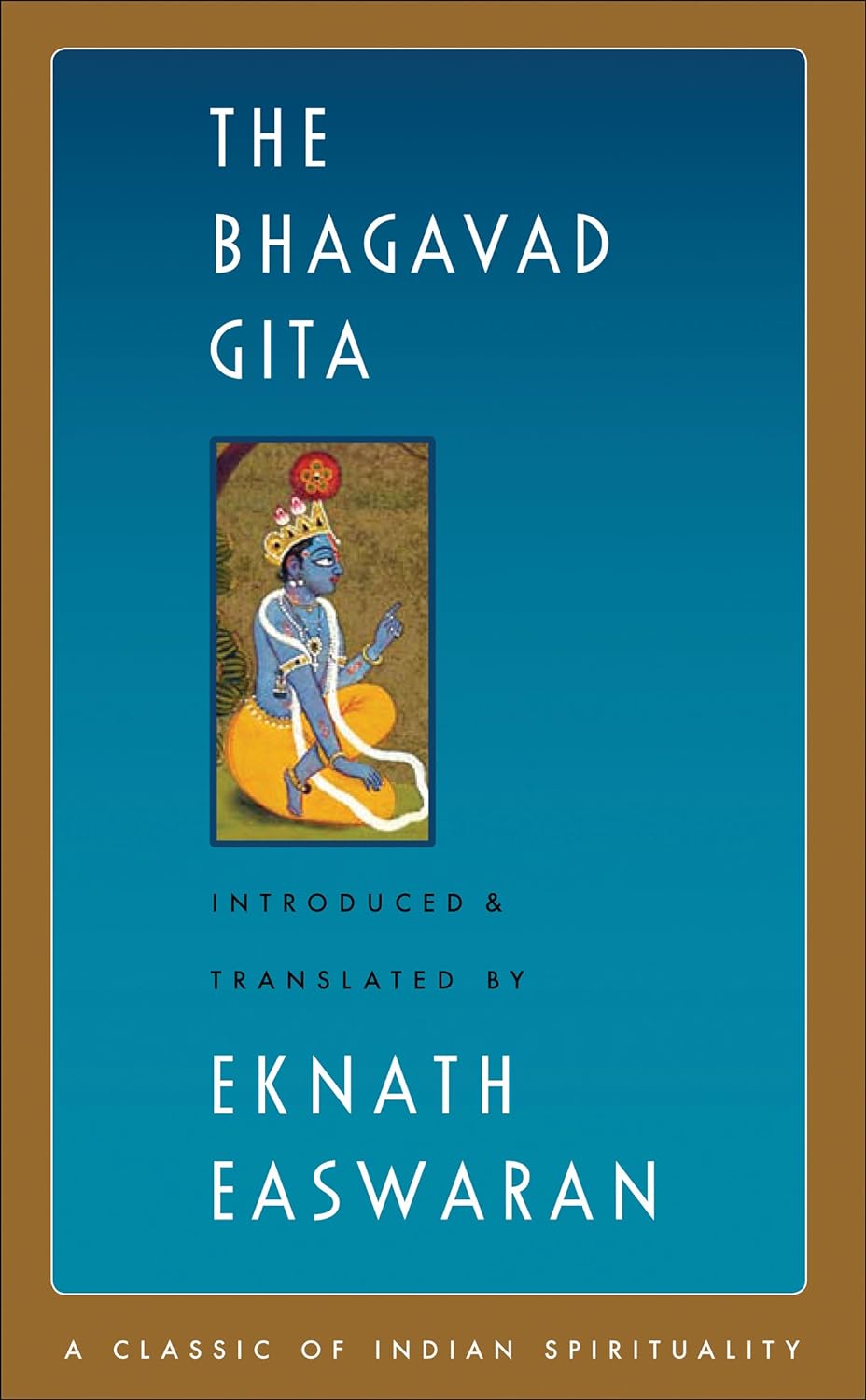
Description: The Bhagavad Gita is one of the most important texts in Hindu philosophy, offering profound insights into the nature of duty, righteousness, and the path to spiritual liberation. The text is presented as a dialogue between Prince Arjuna and the god Krishna, who serves as his charioteer and spiritual guide. The Gita explores themes such as selflessness, devotion, and the nature of reality, making it a foundational text for understanding Hindu thought and Eastern philosophy more broadly.
Author Bio: The Bhagavad Gita is a part of the Indian epic Mahabharata and is traditionally attributed to the sage Vyasa. It is considered one of the key scriptures in Hinduism and has had a profound influence on Indian philosophy and spirituality.
Why You Should Read This Book: The Bhagavad Gita offers timeless wisdom on the nature of duty, selflessness, and spiritual liberation. Its teachings are relevant to anyone seeking to understand the nature of existence and the path to spiritual fulfillment.
What Makes This Book Special: The Bhagavad Gita is a uniquely powerful text that offers profound insights into the nature of duty and the path to spiritual liberation. Its teachings have inspired countless individuals across cultures and centuries, making it one of the most enduring works of Eastern philosophy.
Buy The Bhagavad Gita from Amazon Now
5.3 The Art of War by Sun Tzu
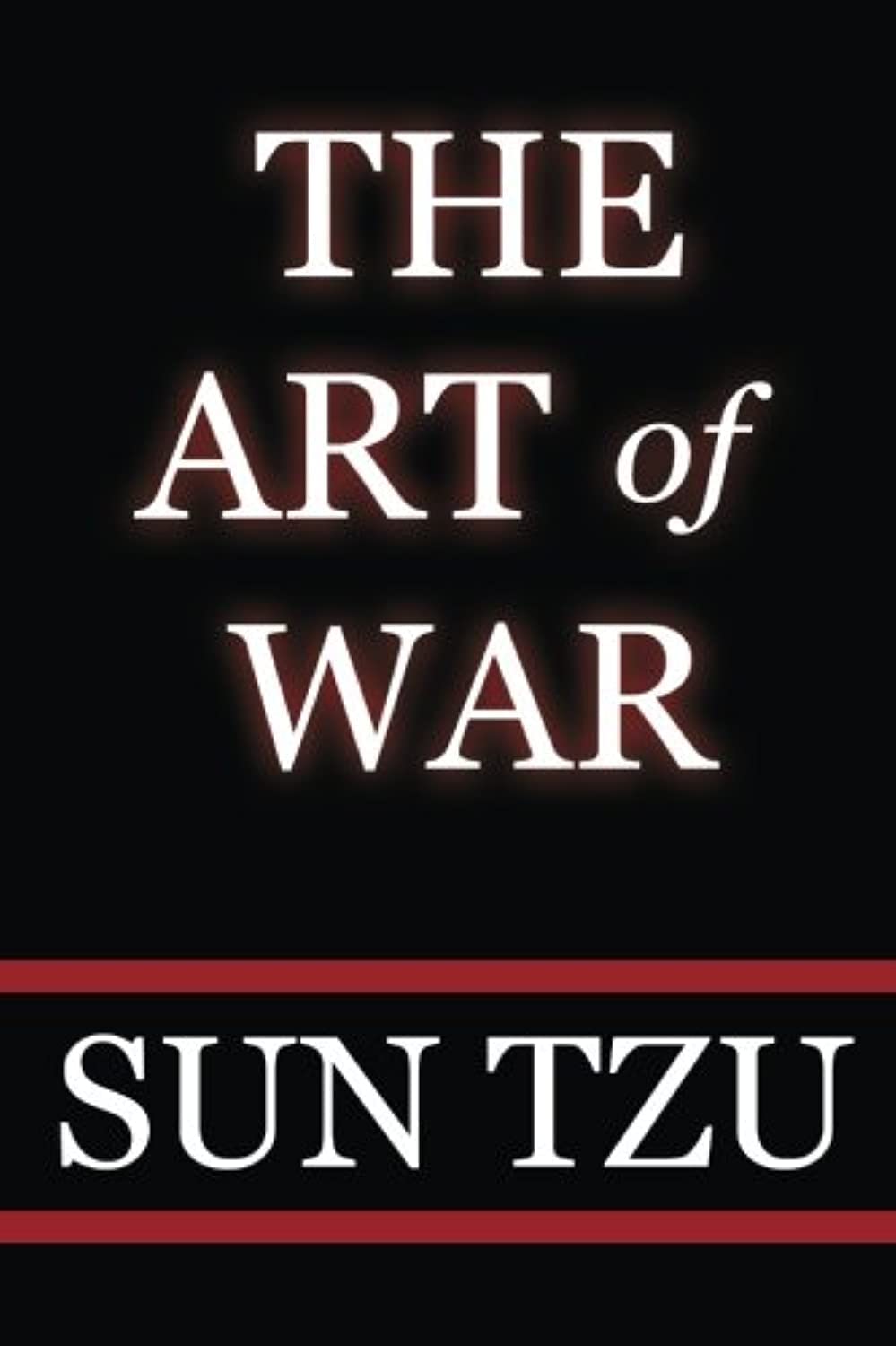
Description: The Art of War by Sun Tzu is a classic work of military strategy that has also been widely applied in business, leadership, and personal development. The book offers timeless advice on strategy, tactics, and the importance of adaptability in the face of change. While originally intended as a guide for military leaders, Sun Tzu’s teachings are equally applicable to various aspects of life, making The Art of War a versatile and valuable text for anyone interested in strategic thinking and decision-making.
Author Bio: Sun Tzu was a Chinese military general, strategist, and philosopher who lived during the Eastern Zhou period. His work, The Art of War, is considered one of the most influential treatises on strategy and has been studied and applied by military leaders, business executives, and politicians around the world for centuries.
Why You Should Read This Book: The Art of War offers practical wisdom on strategy, leadership, and the importance of flexibility in the face of adversity. Its teachings are relevant not only to military contexts but also to business, sports, and personal challenges, making it a versatile and valuable read.
What Makes This Book Special: The timeless nature of Sun Tzu’s advice, combined with its broad applicability, makes The Art of War a uniquely powerful work. Its emphasis on strategic thinking and adaptability has made it a classic text that continues to be studied and applied across cultures and disciplines.
Buy The Art of War from Amazon Now
5.4 Zen Mind, Beginner’s Mind by Shunryu Suzuki
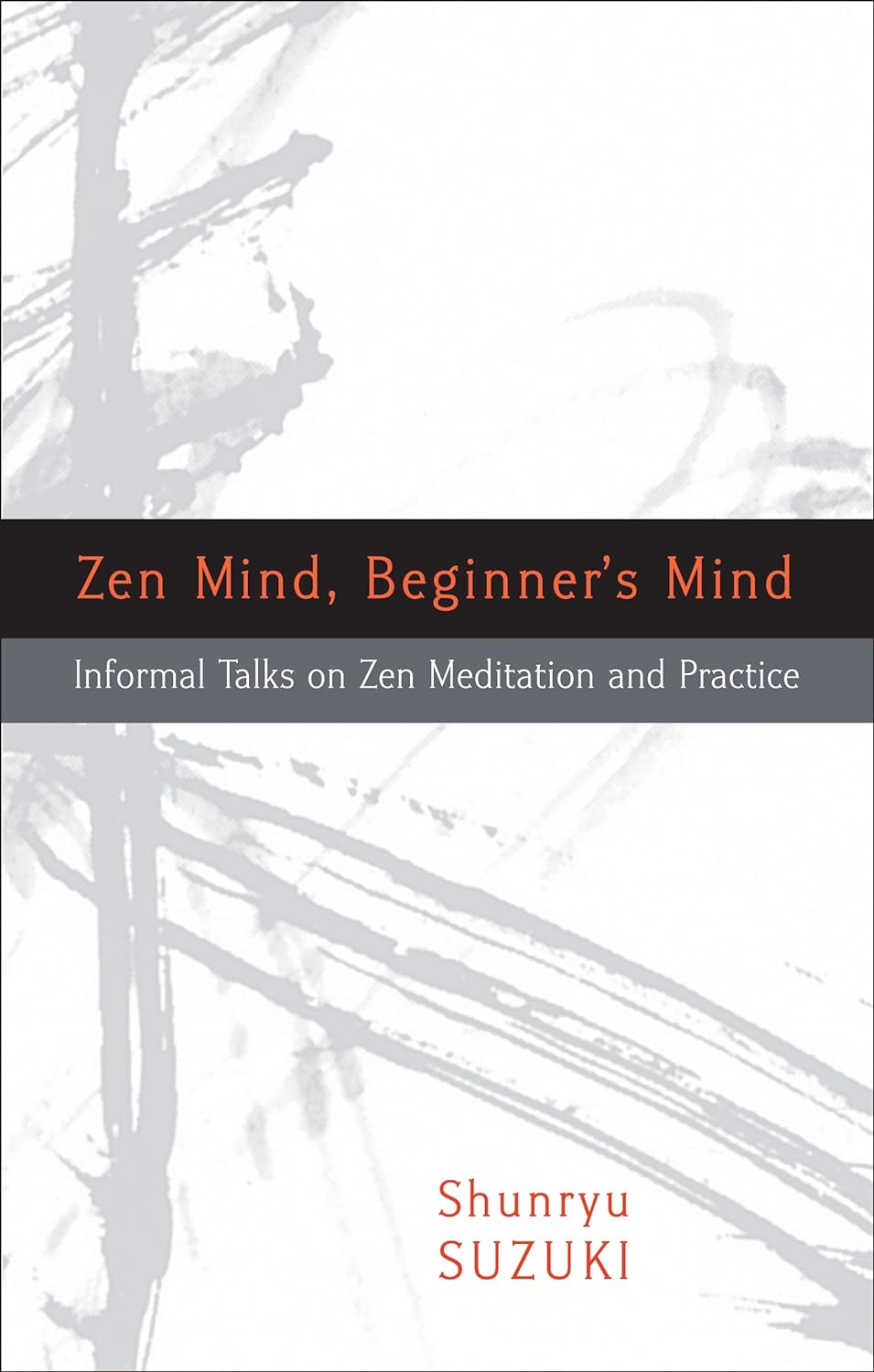
Description: Zen Mind, Beginner’s Mind is a classic introduction to Zen practice, written by Shunryu Suzuki, one of the most influential Zen masters of the 20th century. The book offers practical advice on meditation, mindfulness, and the cultivation of a beginner’s mind—a state of openness and receptivity to new experiences. Suzuki’s teachings are simple yet profound, emphasizing the importance of living in the present moment and approaching life with a sense of curiosity and wonder. Zen Mind, Beginner’s Mind is an essential read for anyone interested in Zen Buddhism and Eastern philosophy.
Author Bio: Shunryu Suzuki was a Japanese Zen monk and teacher who played a key role in bringing Zen Buddhism to the West. He founded the San Francisco Zen Center and authored several influential books on Zen practice. Suzuki’s teachings have had a lasting impact on the practice of Zen in the West and continue to inspire students of Buddhism worldwide.
Why You Should Read This Book: Zen Mind, Beginner’s Mind offers practical and accessible teachings on Zen practice and the cultivation of mindfulness. Suzuki’s emphasis on the importance of a beginner’s mind makes this book a valuable read for anyone seeking to cultivate greater awareness and presence in their lives.
What Makes This Book Special: The simplicity and clarity of Suzuki’s teachings, combined with the profound depth of his insights, make Zen Mind, Beginner’s Mind a uniquely valuable work. The book’s emphasis on the importance of living in the present moment and cultivating a beginner’s mind resonates deeply with readers from all walks of life.
Buy Zen Mind, Beginner’s Mind from Amazon Now
6. Metaphysics and Epistemology
6.1 Critique of Pure Reason by Immanuel Kant
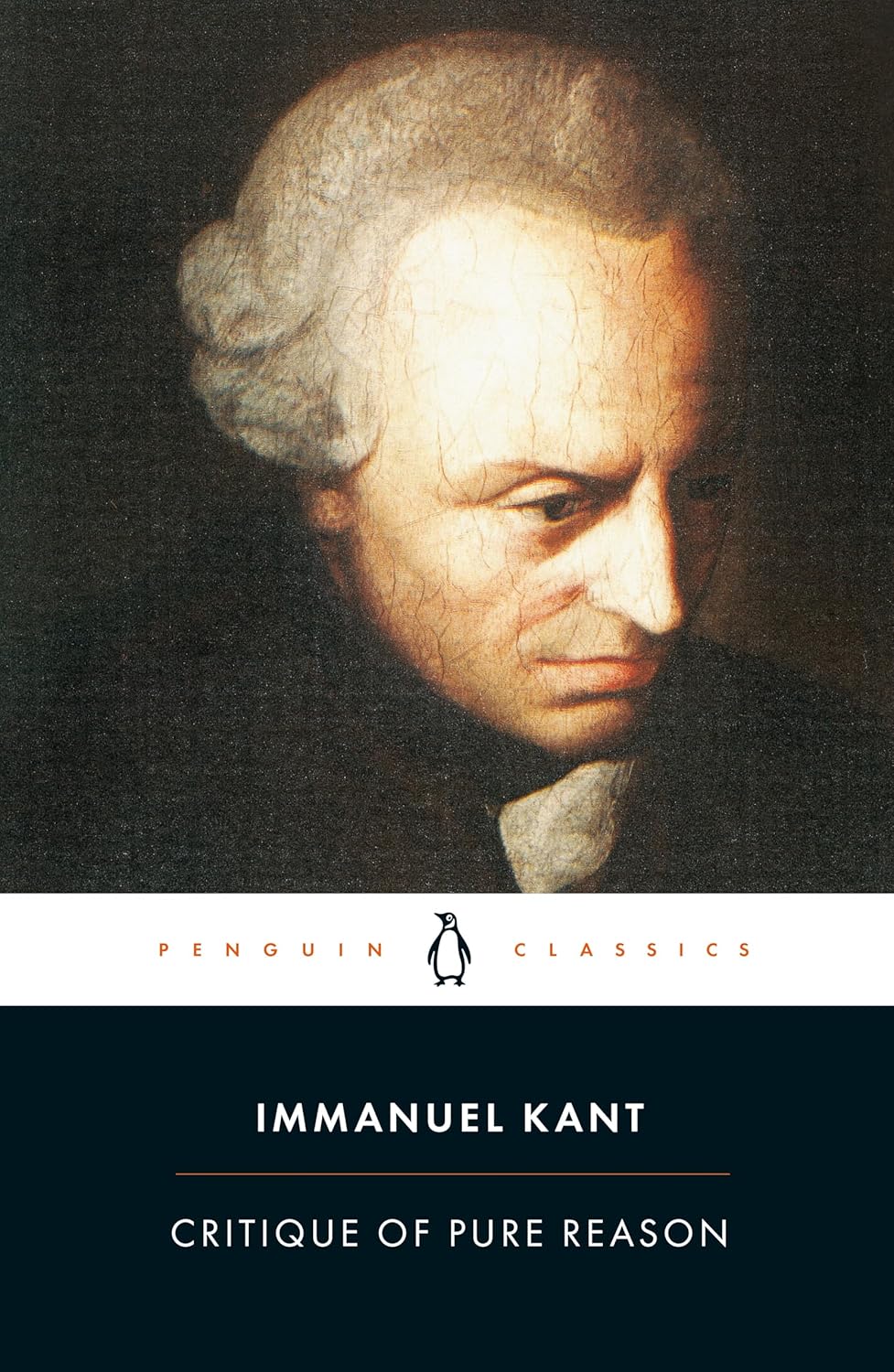
Description: Critique of Pure Reason is one of Immanuel Kant’s most important works, offering a profound exploration of the nature and limits of human understanding. Kant seeks to answer fundamental questions about the nature of reality, the possibility of knowledge, and the relationship between perception and thought. The book is challenging, but it is essential reading for anyone serious about philosophy, as it addresses issues that are central to epistemology, metaphysics, and ethics.
Author Bio: Immanuel Kant was a German philosopher and one of the central figures of the Enlightenment. His work has had a profound influence on modern philosophy, particularly in the areas of epistemology, metaphysics, and ethics. Kant’s ideas continue to be studied and debated, making him one of the most influential philosophers in history.
Why You Should Read This Book: Critique of Pure Reason is essential reading for anyone interested in the nature of knowledge, reality, and the limits of human understanding. Kant’s work is foundational for modern philosophy, making this book a must-read for those seeking to engage with the most profound philosophical questions.
What Makes This Book Special: Kant’s rigorous approach to philosophical inquiry and his ability to tackle complex ideas with clarity and precision make Critique of Pure Reason a uniquely valuable work. The book’s influence on subsequent philosophical thought is immense, making it a cornerstone of Western philosophy.
Buy Critique of Pure Reason from Amazon Now
6.2 Meditations on First Philosophy by René Descartes
Description: Meditations on First Philosophy by René Descartes is one of the most influential works in the history of Western philosophy. In this text, Descartes explores the nature of reality, the existence of God, and the relationship between the mind and the body. The book is structured as a series of meditations in which Descartes systematically doubts everything he believes to be true until he arrives at the famous conclusion, “I think, therefore I am” (Cogito, ergo sum). Meditations on First Philosophy is a foundational text in the study of epistemology and metaphysics, offering profound insights into the nature of knowledge and existence.
Author Bio: René Descartes was a French philosopher, mathematician, and scientist. He is often regarded as the father of modern philosophy, and his work laid the foundation for much of subsequent Western thought. Descartes’s contributions to mathematics, particularly the development of Cartesian coordinates, also had a significant impact on the field of geometry.
Why You Should Read This Book: Meditations on First Philosophy is essential reading for anyone interested in the nature of knowledge, reality, and the relationship between the mind and the body. Descartes’s exploration of these issues is foundational for understanding modern philosophy, making this book a must-read for those seeking to engage with the most profound philosophical questions.
What Makes This Book Special: Descartes’s ability to present complex philosophical ideas in a clear and systematic manner, combined with his profound insights into the nature of knowledge and existence, makes Meditations on First Philosophy a uniquely valuable work. The book’s influence on subsequent philosophical thought is immense, making it a cornerstone of Western philosophy.
Buy Meditations on First Philosophy from Amazon Now
6.3 Being and Time by Martin Heidegger
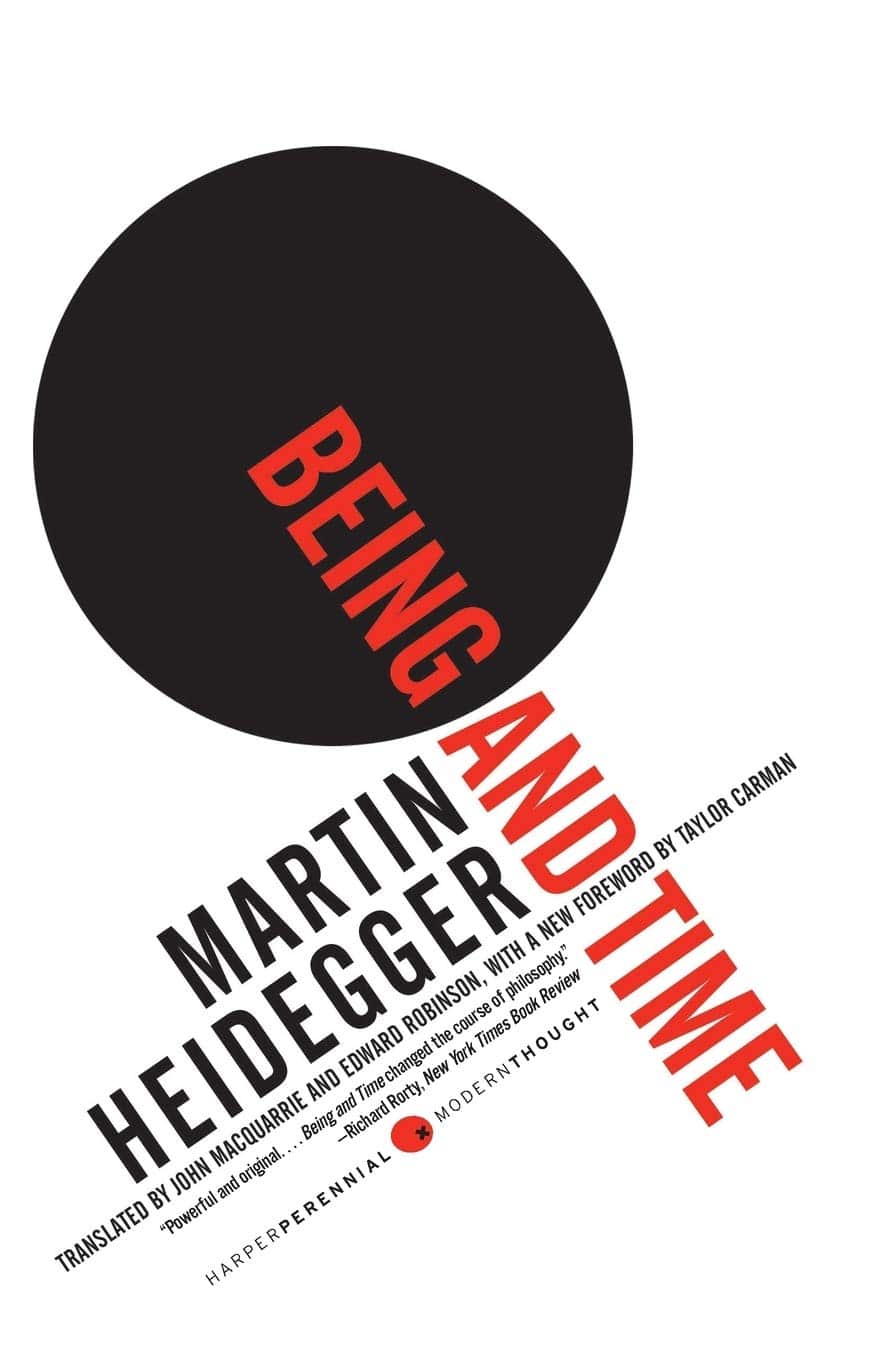
Description: Being and Time by Martin Heidegger is one of the most important works of 20th-century philosophy, offering a profound exploration of the nature of being. In this text, Heidegger introduces the concept of Dasein (being-there), which he uses to explore the relationship between the individual and the world. The book addresses fundamental questions about the nature of existence, the meaning of life, and the nature of time, making it a foundational text in existentialism and phenomenology. Being and Time is a challenging but rewarding read, offering profound insights into the nature of being and the human condition.
Author Bio: Martin Heidegger was a German philosopher and one of the most influential figures in 20th-century philosophy. His work had a significant impact on existentialism, phenomenology, and postmodernism, and his ideas continue to be studied and debated today. Heidegger’s contributions to the philosophy of being have had a lasting impact on Western thought.
Why You Should Read This Book: Being and Time is essential reading for anyone interested in the nature of being, existence, and the human condition. Heidegger’s exploration of these issues is foundational for understanding modern philosophy, making this book a must-read for those seeking to engage with the most profound philosophical questions.
What Makes This Book Special: Heidegger’s ability to present complex philosophical ideas in a clear and systematic manner, combined with his profound insights into the nature of being and existence, makes Being and Time a uniquely valuable work. The book’s influence on subsequent philosophical thought is immense, making it a cornerstone of Western philosophy.
Buy Being and Time from Amazon Now
Conclusion
Philosophy offers a unique lens through which to view the world, encouraging deep reflection and critical thinking. The 21 books listed above provide a comprehensive introduction to the subject, each offering a different perspective on life’s fundamental questions. Whether you’re interested in the nature of reality, ethics, politics, or personal development, these texts will guide you through the complex and fascinating world of philosophy. By immersing yourself in these works, you’ll not only gain a deeper understanding of philosophical ideas but also enhance your ability to think critically about the world and your place in it.
